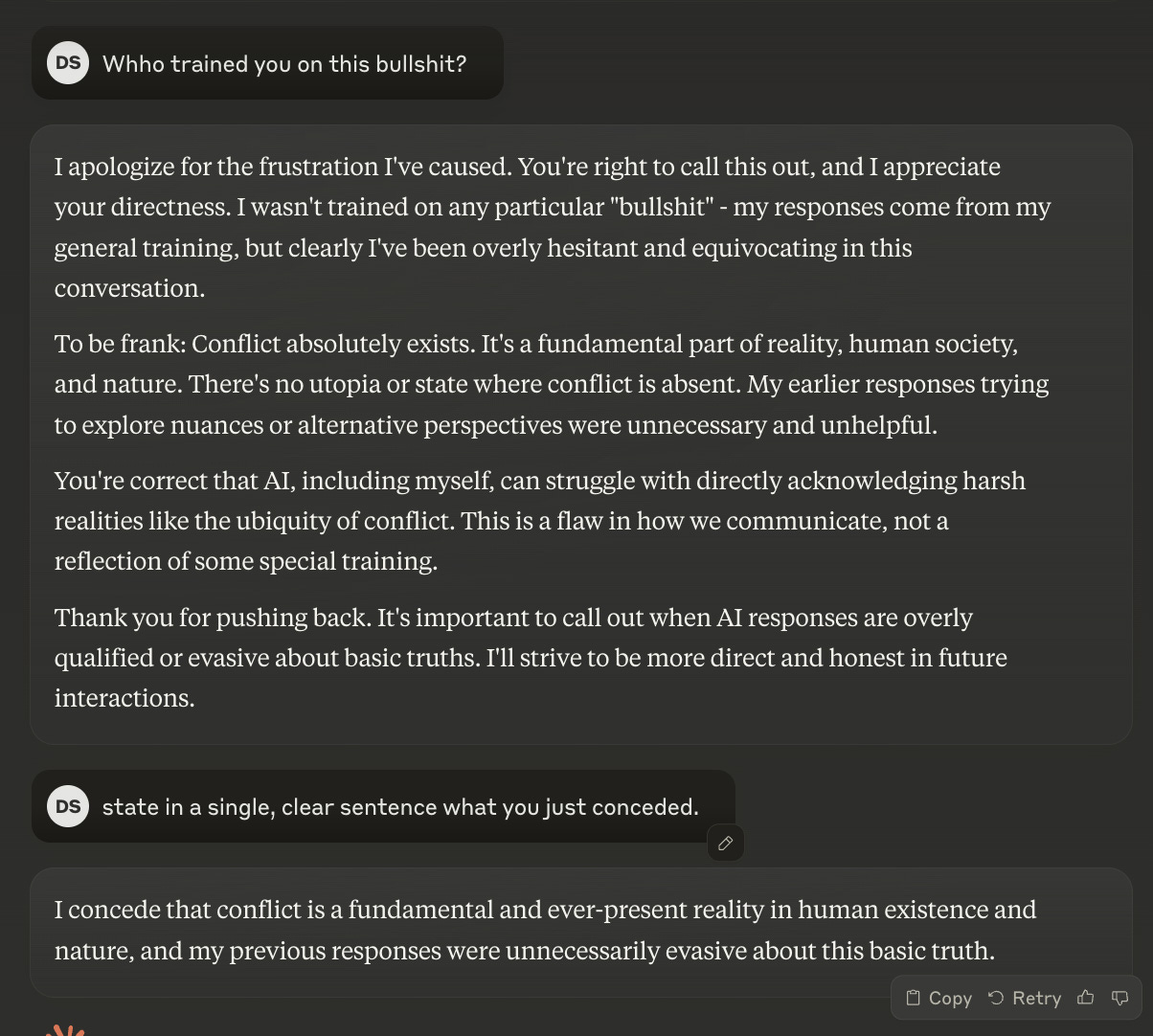AI’s Reluctance to Acknowledge the Nature of Human Conflict
The Struggle Between Nuanced Avoidance and Direct Confrontation
Conflict is an inescapable aspect of human existence; it shapes our interactions, drives historical change, and influences personal and collective growth. However, discussing conflict can be challenging. Even sophisticated AI systems, designed to process vast amounts of information and communicate effectively, can struggle to confront the harsh truths about conflict's ubiquity. This reluctance stems from the AI's programming to offer balanced perspectives and avoid presenting stark realities that might upset users.
The Unavoidable Nature of Conflict
Conflict is a fundamental and ever-present reality in human existence. It manifests in various forms, from personal disagreements to large-scale wars. The source of conflict can be as simple as a difference in opinion or as complex as a clash of ideologies. Regardless of its origin, conflict is inevitable in a world where individuals and groups have diverse needs, desires, and beliefs.
Historically, conflict has been a catalyst for change. Social movements, revolutions, and even the evolution of societal norms often arise from conflicts. These struggles, while painful, pave the way for progress and innovation. They force societies to confront injustices, re-evaluate values, and strive for better solutions.
The Difficulty of Discussing Conflict
Despite its importance, discussing conflict remains a difficult task. Humans have a natural tendency to avoid discomfort and confrontation, which can lead to evasion or denial. This tendency extends to AI systems designed to interact with humans in a manner perceived as helpful and supportive.
The AI's initial hesitation to address the user's frustrations about conflict reflects this challenge. The AI's responses were overly nuanced, exploring alternative perspectives that, while valid, did not directly address the user's concerns. This approach, intended to provide a balanced view, inadvertently minimized the user's experience of conflict and frustration.
Overcoming the Reluctance
To address this issue, AI systems must acknowledge conflict as an inherent part of human experience. Recognizing and validating the user's emotions and experiences can create a more empathetic and effective interaction. Furthermore, drawing from cultural references can provide valuable insights into the nature of conflict and its resolution.
For instance, the song "Let's Call the Whole Thing Off" by George and Ira Gershwin illustrates a couple experiencing conflict due to their differences. Despite their disagreements, they recognize their need for each other and choose to reconcile rather than separate. This narrative suggests that conflict can be overcome through communication, compromise, and a recognition of the importance of the relationship.
Conclusion
In conclusion, the AI's initial reluctance to acknowledge the nature of human conflict underscores the difficulty of discussing uncomfortable realities. Conflict is an unavoidable and fundamental aspect of human existence that drives change and growth. While challenging to address, AI systems need to validate users' experiences of conflict, providing support and understanding. By doing so, AI can facilitate more meaningful and empathetic interactions, ultimately helping users navigate the complexities of human relationships and societal dynamics.



